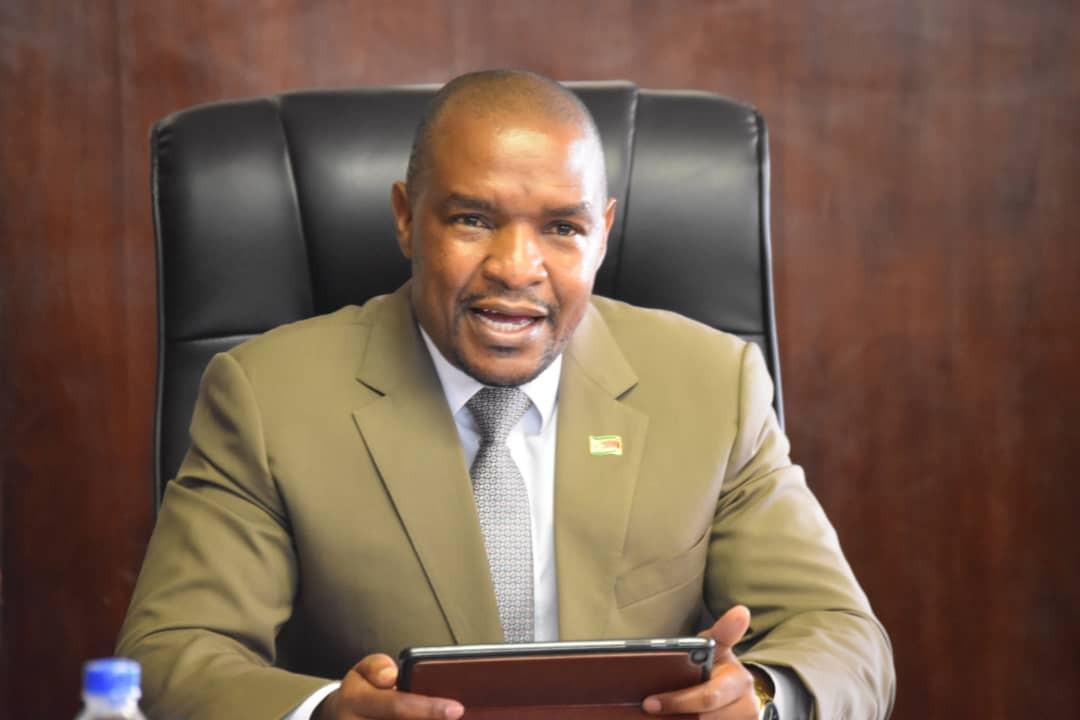Africa-Press – Zimbabwe. Government is advancing a new phase of transport-sector modernisation, with Transport and Infrastructural Development minister Felix Mhona announcing sweeping legislative changes aimed at improving road safety, tightening regulatory compliance and strengthening post-crash support systems.
Speaking at the commissioning of new inspection equipment at the Vehicle Inspectorate Department (VID) Eastlea depot Friday , Mhona said the government had already “promulgated various statutory instruments on new driver’s licensing regimes, installation of speed limiting and monitoring devices and minimum age restrictions on drivers of public service vehicles”.
He said the measures form part of a wider national effort to improve accountability and reduce road deaths.
“On the legislative front, we have promulgated various statutory instruments on new driver’s licensing regimes, installation of speed limiting and monitoring devices and minimum age restrictions on drivers of public service vehicles,” Mhona said.
He described the updated licensing regime as a critical reform intended to raise competency standards across the sector and ensure that drivers of public-service vehicles meet stricter thresholds of skill and maturity.
The new rules, he said, were designed “to enhance professionalism and responsibility among operators who transport the public daily.”
Mhona also underscored the government’s push to deploy technology, particularly for speed control across the transport system.
The statutory instrument requiring speed-limiting and monitoring devices, he noted, was introduced to curb high-risk behaviour linked to severe crashes.
By mandating such equipment, the government aims to bring scientific and real-time accountability to how public-service vehicles and heavy transporters operate on Zimbabwe’s roads.
However, the most far-reaching policy shift outlined in his address is the government’s work on new legislation to establish a national Road Accident Fund.
Mhona said the Bill is being developed to improve post-accident care for victims of traffic accidents, providing Zimbabwe with a dedicated and more predictable structure for supporting survivors and families.
“We are also developing legislation for the establishment of the Road Accident Fund to improve post-accident care for victims of traffic accidents.
“This Bill will establish a national framework for post-crash emergency response and provide support to accident survivors and the deceased.
“The fund will be primarily financed through motor vehicle insurance premiums and additional allocations as approved by the Treasury.”
He explained that the Bill “will establish a national framework for post-crash emergency response and provide support to accident survivors and the deceased,” marking what analysts say could be one of the country’s most significant institutional reforms in decades.
In its proposed form, the fund will be financed “through motor vehicle insurance premiums and additional allocations as approved by the Treasury,” creating a hybrid model intended to ensure sustainability while distributing financial responsibility across the motoring public.
The minister positioned the Road Accident Fund as a measure designed not only to meet immediate compensation needs but also to encourage long-term investment in emergency-response capacity and data-driven policy planning.
Mhona linked the legislative reforms to the broader modernisation programme underway at the VID, where newly commissioned inspection equipment—including brake-roller testers and enforcement vehicles—is expected to strengthen the government’s capacity to enforce roadworthiness standards.
The technology-driven shift, he said, will give regulators “more accurate, tamper-proof methods for assessing vehicle fitness” and help eliminate irregularities previously associated with manual inspections.
He argued that the combination of tighter laws, updated technology and stronger institutional capacity represents a significant structural step towards building a safer, more transparent and more accountable transport environment.
While acknowledging the scale of the country’s road safety challenges, Mhona emphasised that these reforms represent a decisive step in tackling Zimbabwe’s long-standing road safety crisis.
For More News And Analysis About Zimbabwe Follow Africa-Press






